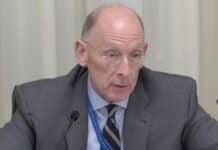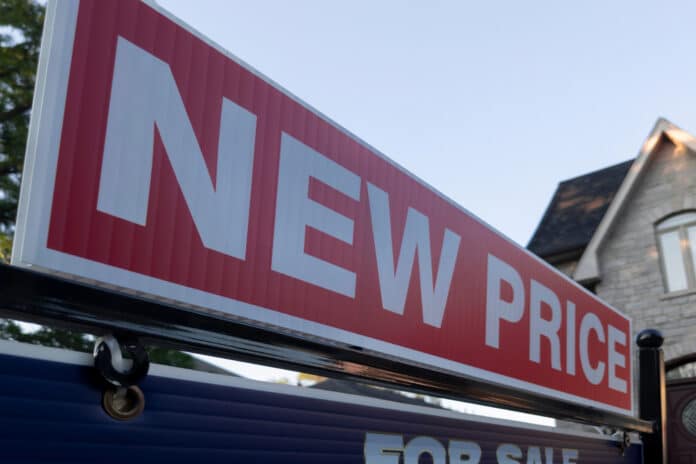American voters are still in the dark when it comes to defining what Kamala Harris is advocating. Their convention of “joy” did not define much and the recent CNN taped interview continued with vague talking points and empty platitudes.
Clearly a wide variety of polls indicate the economy is the top concern for voters, over that of immigration, public safety and foreign policy—all still very important. This leaves little time for Harris to solidify her policies as the Sept. 10 debate is looming. In-person voting in Minnesota begins Sept. 20—other states are earlier. But maybe she wants her policies sufficiently vague.
Taxpayers of all ages must navigate the challenges of the cost of living, retirement plans, healthcare, insurance and more. The demographics of Gen. Z and young Millennials find this especially challenging. As they begin their careers, get married, start a family, attempt to buy a home, they face significant headwinds. They are economically stuck between reaching the American Dream of home ownership while trying to manage debt.
According to a Marketplace article on March 1, 2024, the monthly mortgage payment since 2020 has gone up 96%. The new median monthly mortgage is $2200. The benchmark of a 30% monthly income to budget for that has driven up the minimum income needed from $59,000 to $106,000. This forces young adults to remain in the rental market which doesn’t earn any home equity. While inflation has temporarily abated in the area of 3%, its effects remain—high prices.
At the end of his term, President Trump handed off a 1.4% inflation rate with a national economic gain of $1.5T annually despite the challenges of Covid. Biden was not patient for the economy to heal itself. Instead, he signed into law the “American Rescue Plan,” which had $1.9T of funding in March 2021, and the Inflation Reduction Act, which was funded at $891B in 2022. Vice President Harris broke the Senate tie for both bills.
As a result of this new spending, the Federal Reserve had to create new dollars to meet the demand. This massive infusion raised the inflation rate and devalued the dollar 20%, according to the Bureau of Labor Statistics (BLS). The current reality finds the Fed working to deliver a “soft landing” to the economy while Biden/Harris continue to spend dollars. The Fed and the White House continue to work against each other as the economy sputters. The current national debt of $35T has a debt/GDP ratio of 123%, a far cry from a balanced ratio that last occurred in 2001. The debt increases a trillion dollars about every 100 days—this trend line is not sustainable. This points to a very challenging future for our young adults attempting to get started in life. Even established households feel the higher costs.
The economic policy for a Harris presidency has trickled out but with some significant reversals. According to a handful of articles, she has changed her opinions on: fracking, the Green New Deal, EV mandates, the border wall, mandatory gun buy-backs, expanding the Supreme Court, federal job guarantees, plus others. Yet she insists her “values haven’t changed”—which defies any attempt at logic. Policy positions and values are not mutually exclusive.
Her staff continues to trickle out other economic signals such as: an income-based premium paid by employers, higher taxes on the top 1%, capital gains taxed at ordinary income, allow Trump’s “Tax Cuts & Jobs Act” to sunset in 2025, tax Wall Street stock trades, tax offshore corporate income, provide free government healthcare, build 3 million homes, institute government price controls, investigate price gouging, a $25,000 check for first-time homebuyers and government incentives for “green energy” initiatives. One can only wonder what real policy will develop if she occupies the Oval Office. Harris loves to demonize corporations but at the peril of a viable economy.
The single commodity that impacts the entire economy is the price of crude oil. As it moves through the economy, from the pump price to its impact on manufacturing and transportation, it cannot be discounted. Harris is significantly vague on this given her recent statement on fracking.
The “modern monetary theory” of unbridled government spending will continue to crush young adults who are trying to get ahead. The cost of living will exceed their ability to catch up as they attempt to map out their future. A $25,000 assistance for a first home will only skew prices higher. The foolishness of this idea exemplifies Harris’ lack of economic literacy. Corporations will likely seek the tax shelter of foreign countries once again.
Not to be outdone, VP candidate Gov. Tim Walz signed legislation that spent the entire Minnesota surplus of $18B, added 38% to the state budget and increased taxes 10%. Additional analysis points to challenges, according to the “Rich States, Poor States” 2024 report. A sampling shows that Minnesota’s economic outlook is ranked at 44th, ranked 45th for top marginal personal income tax (9.85%), 46th for the top marginal corporate tax rate (9.8%) and 50th for the estate/inheritance tax rate. I guess the consolation to all this was we got a spiffy new state flag.
The reality is, young adults are having a difficult time making their transition towards their future goals. They must realize that government spending has an accountant as there is no such thing as a “free lunch.” Consequently, they must take an active role in their future which means they must turn off the “noise” from social media and reject single issues. Instead, they must become cognizant of the realities of party policies and their future impact. Further, an unsolved border crisis and a sketchy foreign policy will add to economic instability.
If you know a young adult caught in this economic trap, explain the ramifications of government policies. “We are not going back,” Harris likes to say. Well, I hope not—enough with failure.
The views and opinions expressed in this commentary are those of the author and do not represent an official position of Alpha News.











